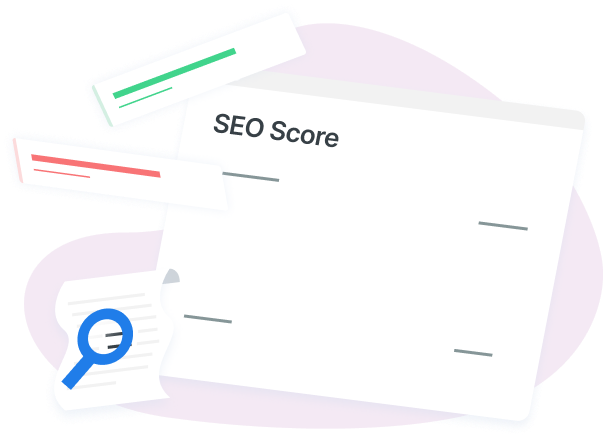What Is Organic SEO? And Why It’s a Game-Changer for Your Business
If you own a business, you know how important it is for users to visit your website. After all, that’s where they can learn more about your products, services, and your brand.
But what if you’re just not getting the website traffic that you need to boost your brand into industry stardom? In that case, you need to optimize for organic search.
To help you understand organic SEO and start integrating it into your marketing strategy, we’ve put together this guide. These are the topics we will cover:
What Is Organic SEO? Overview
If these results are something you’re after, read on to learn about the basics of organic SEO, an example organic SEO strategy, and how it’s a game-changer for your business.
If you’d like to speak with a specialist about organic search engine optimization, call us at 888-601-5359 to learn more about our organic SEO services!
Don’t miss our Marketing Manager Insider emails!
Join 200,000 smart marketers and get the month’s hottest marketing news and insights delivered straight to your inbox!
Enter your email below:
Inline Subscription Form - CTA 72
"*" indicates required fields
(Don’t worry, we’ll never share your information!)

What is organic SEO?
Organic SEO is an online marketing strategy designed to improve your website’s rankings in unpaid search results on search engines like Google or Bing. It involves tactics such as keyword research, link building, content creation, and optimizing page load time to appeal to gain higher placement in the search results.
Why is organic SEO important?
Organic SEO is important for improving brand visibility in online search engines, leading to more conversions and revenue.
A staggering 75 percent of searchers don’t even click past the first page of results. If you’re not ranking highly, you guessed it — your website won’t get any traffic, which means your site will struggle to bring sales and leads to your business.
Companies also need to pay attention to organic search engine optimization because users rely on search engines to find what they need. Over 90% of online experiences begin with a search engine, like Google.
If you don’t appear at the top of organic search results, you’re giving away revenue. In fact, organic traffic captures more than 40% of revenue. Not to mention, search engines deliver a close rate that’s eight times higher than traditional marketing.
Search is a valuable marketing channel that’s waiting to drive revenue for your business. You just have to start optimizing your site for organic SEO to start taking advantage of the benefits.
Google’s relationship with organic SEO
Before we can talk about how to do organic SEO, it’s important to understand Google, and why it plays such a big role in your organic SEO strategy. Let’s talk about how ranking works, and how organic SEO and Google are connected.
Google, as a search engine, has a big responsibility. The most popular search engine’s main goal is to ensure that when a user provides a search query, it returns the most informational, beneficial results possible.
Google wants the results it delivers to be all-encompassing resources that match the search intent of users — the information they want to find when searching online.
Not only that, but Google also cares about the experience that its users will have on a website, so it also looks at things like the user experience a website provides, page speed, and dwell time.
All of these site factors play a big role in organic search rankings and where your site appears in SERPs.
How does organic SEO work?
If Google’s main goal is to provide the best possible results for users, the goal of organic SEO is to create a website and content that is worthy of Google’s top ranking.
If you want your website to rank highly in SERPs, it’s crucial that you implement organic SEO. An organic SEO strategy consists of techniques that work together to improve your website.
Some organic SEO strategies include:
- Keyword research: Researching the keywords you should target so your website appears at the top of SERPs when people search keywords and phrases related to your business.
- Content creation: Creating various types of content to target valuable keywords for your organic SEO campaign.
- Creating an internal linking profile: Ensuring that your site pages include links to other pages on your site so search bots can appropriately crawl and index your site.
- Adding multimedia to content: Adding visual elements like images, infographics, and videos to your site pages to engage visitors and encourage them to spend more time on your site.
- Ensuring your site is easy to use and aesthetically pleasing: Simplifying your site’s navigation so visitors can find information quickly and efficiently, ensuring your buttons and forms load properly, and updating your site’s design.
- Optimizing page load time: Making sure your site pages don’t take longer than two or three seconds to load to prevent people from leaving or bouncing from your site.
- Adding image alt tags: Adding descriptive text to your images in code to ensure that Google can understand what the images are and how they relate to the content.
These techniques work together to appeal to Google’s ranking algorithm, which can help you rank higher in SERPs.
How much does organic SEO cost?
Prices for organic SEO depend on several factors, from your strategy’s aggressiveness to your SEO agency’s pricing model. On average, companies will invest $1500 to $5000 per month. If using organic SEO consulting services, rates range from $100 to $300 per hour.
How long does organic SEO take?
On average, it takes anywhere from six months to a year to see results from SEO. The timeline will vary based on many factors, including how much time you invest in SEO, how optimized your site was originally, and how effective your tactics are.
SEO is an ongoing process, so you can’t expect immediate results from your campaign. SEO requires more time and resources invested upfront, but it delivers results for a long, consistent period.
Learn how we increased traffic by over 40%, and conversions by over 100% for an ecommerce client.
Read the Case Study

5 steps to get started with SEO
Now that you know what organic SEO is, you might be wondering how to turn that information into an effective strategy for your business.
Let’s dive into a five-step organic SEO strategy that is sure to get your website in Google’s good graces. You could also consider these some organic SEO best practices.
5 Steps To Get Started With SEO
1. Conduct keyword research
Keyword research is extremely important in SEO in digital marketing — in fact, some would say it’s the basis of effective organic SEO strategies.
Start by entering keywords related to your products or services into a keyword research tool. From there, you can see variations of those keywords, their search volumes, competition, and cost-per-click value.
Ideally, you’ll choose keywords with high monthly search volumes and low competition — this is the secret sauce when it comes to finding effective keywords.
When you’re choosing keywords, you should consider targeting a variety of short-tail and long-tail keywords. Short-tail keywords are more general keywords like “ice cream cake.” Long-tail keywords are more specific keywords and phrases like “chocolate chip hand-dipped ice cream.”
As you can see, these keywords are very different and attract searchers with different intents.
If you run an ice cream parlor and write a page that targets the keyword “ice cream cake,” you’re going to have a really hard time ranking for that keyword in search results.
Why? Because thousands of other ice cream parlors are also trying to rank for that exact same keyword.

As you can see, the search volume is super high for the keyword, but so is the competition.
On the other hand, if you write a page that targets the long-tail keyword “chocolate chip hand-dipped ice cream,” you’ll have a much easier time ranking since not every ice cream parlor will create content about that product. The search volume is much lower, but so is the competition.
2. Create content to target your most qualified keywords
After you’ve chosen a list of keywords that will effectively target your audience, it’s time to start writing. Google ranks this content in search results, so like we mentioned before, it’s important that it’s informative and beneficial to readers in order to earn top organic rankings.
You can choose to publish a variety of content types to target your keywords.
For example, a blog allows you to publish a steady stream of fresh content, which Google loves. You could also publish long-form content, which is typically more than 2000 words in length. Google also loves long-form content since it proves that you’re an expert on the topic.
Other types of content include:
- Homepage content
- Product pages
- Deep-dive industry articles
- Industry news and updates
No matter what kind of content you choose to write, you should strive to provide the best possible information to users about your target keyword.
3. Add media to your content
One of the most important organic SEO tips is to add multimedia to your content. Although multimedia may seem trivial, it is far from it. In fact, there are tons of perks to adding multimedia to your content.
First, when we say multimedia, we’re talking about images, infographics, and even videos. This kind of content is great for breaking up long walls of text and helps keep users engaged on your page.
But how does multimedia benefit your organic SEO campaigns?
When you keep users engaged on your site pages, you keep them on your website for longer. Like we mentioned earlier, dwell time, or how long users stay on your website, is an important Google ranking factor.
Any little addition to your page that helps keep users on your site longer is another second toward your overall dwell time, which can benefit your search rankings.
4. Optimize your site’s page speed
We also mentioned that page speed is another Google ranking factor, and for good reason. Remember how we said Google wants to provide the absolute best results to users?
More than half of search engine users, 53 percent to be exact, will leave your website if it takes longer than three seconds to load. Although that sounds like breakneck speed, it’s not all that uncommon in today’s technological age.
Here are a few organic SEO tips to consider when you’re trying to improve your page speed:
- Compress your images: Although huge images look beautiful on your website, they often bog down your page speed. Use a tool like Kraken.io to condense your images and still keep them looking beautiful!
- Reduce number of redirects: If your website has a lot of redirects, it can slow down your page speed since the server has to look for two separate pages, the redirected page, and the page it’s being redirected to.
- Browser caching: Browser caching stores website resources on local computers when people visit your site. This frees up space for your pages to load faster since browser caching “remembers” resources instead of downloading them again as visitors browse your site.
These are just a few solutions to slow page speed. If you’re serious about your website loading faster, consider page speed optimization services from WebFX!
5. Organize your internal linking structure
When you create an internal linking structure on your website by linking your pages together, you make it easier for Google to crawl your site.
In order for Google to determine if your pages are worth ranking, search bots first have to crawl them. Crawling allows them to take note of what keywords your content targets, what your images depict, and more.
However, if you want Google to have an easy time finding and crawling all your site pages, it’s extremely beneficial to create a strong internal linking structure.
You can do this by simply linking to other pages in your site content. For example, if you’re talking on one of your services pages about how easy it is to wash out the carpet that you sell, and you just wrote a blog about how to do so, you can link to your blog on that service page.
Likewise, you can link to your carpet product page within your blog.
When it comes to satisfying organic SEO best practices, you’ll want to do this with all of your site pages and ensure that they’re all linked in at least three pages of your website for optimal internal linking structure. In addition, you’ll want to consider the hierarchy of your website pages when linking internally.
Should you do organic SEO yourself?
Many companies choose to do SEO in-house. However, adding the workload it takes to improve your site can be a challenge for some businesses. Some companies choose to start implementing techniques slowly and then shift to working with an agency to get their results moving.
If you aren’t sure whether you should do SEO yourself, consider the following:
- Your budget
- Your team
- Your timeline
- Your current website optimizations
- Any past SEO attempts
So, while you can do SEO yourself, it’s worth considering working with an agency if it fits your goals.
Independent research from Clutch has named WebFX the
top SEO company in the United States.
Clutch has personally interviewed more than 250 WebFX clients to discuss their experience partnering with us.
Read More Clutch Reviews

Ready to implement an organic SEO strategy?
Want to start reaping the benefits of a custom, organic SEO strategy?
If you’re feeling overwhelmed after reading our five-step strategy process, you might be nervous to take on the challenge. Don’t worry.
Although you can do organic SEO and paid search on your own, it’s a huge undertaking, and we typically recommend hiring an organic SEO company like WebFX.
We’ve been in the business for over a decade, and we’ve already driven amazing results for our clients. In the past five years, we’ve been able to drive a staggering $6 billion in client revenue.
We also have more than 1,100 client testimonials that prove that we’re masters at our craft.
If you’d like to work with the best organic SEO company in the world, as per Clutch, a third party ranking site, feel free to contact us online, or give us a call at 888-601-5359 to learn more about our organic SEO services!
We can’t wait to craft a custom organic SEO marketing campaign that helps your business grow!
Marketing Tips for Niche Industries
- Top-of-the-Line SEO Services for Health Insurance Companies
- Tourism SEO: 3 Tips for Getting Started
- Unlocking Success: Long Tail Keywords for Dentists
- Urgent Care SEO & SEO Services
- Why Long-Tail Keywords Are Important for Electricians
- Why SEO for Museums Matters
- Why SEO is Important for Medical Equipment Companies
- Why Your Grocery Store Needs SEO
- 10 Easy Ways to Boost SEO for Yoga Studios
- 10 Ways Retailers Can Build Links for Their Websites


How Is Your Website's SEO?
Use our free tool to get your score calculated in under 60 seconds.







